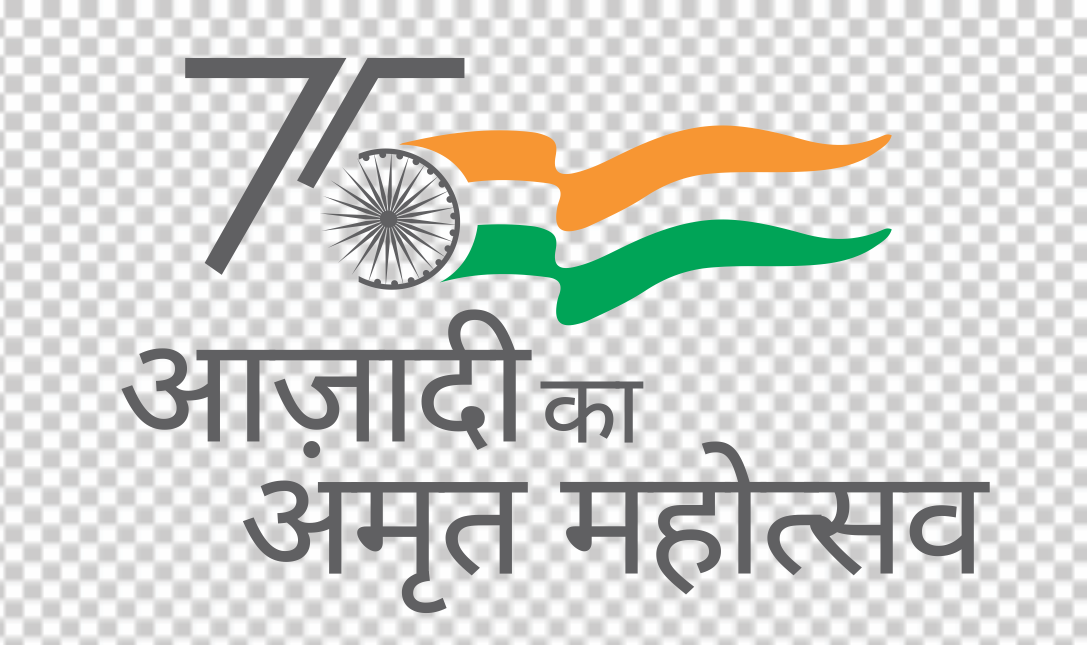Board of Advisors
Board of Advisors
Our Board normally consists of Internationally Credible Luminaries, Dignified, Personalities of Great Eminence and Leading Green thought Leaders from India and Abroad. Our Previous Board has completed its full term recently. The New Board of Advisors, are under formation. Those who have already confirmed to join the Board, their profile is displayed below. Profiles of other members of the Board, will appear immediately after their acceptance.

Shri Chandi Prasad Bhatt
Shri Chandi Prasad Bhatt (Born on 23rd June, 1934) is an Indian Gandhian Environmentalist and social activist, who founded Dasholi Gram Swarajya Sangh (DGSS) in Gopeshwar in 1964, which later became a mother-organization to the Chipko Andolan (Hug the Trees Movement), in which he was one of the pioneers, and for which he was awarded UNEP Global 500 Roll of Honour, the Ramon Magsaysay Award for Community Leadership in 1982, followed by the Padma Shri in 1986 and Padma Bhushan in 2005. Today he is known for his work on subaltern social ecology, and considered one of India's first modern environmentalists. On 15 July 2014, he was awarded the Gandhi Peace Prize for the year 2013 by the Hon'ble President of India.
Curtailment of the villagers' legitimate rights to trees and forest products in favour of outside commercial interests enabled Bhatt, in 1973, to mobilise the forest-wise society members and villagers into the collective Chipko Andolan to force revision of forest rules of 1917, enacted during British ruled India. Women, who regularly walk three to five miles to the forest to gather and carry home fuel and fodder on their backs, took the lead. True to the movement's non-violent philosophy, these women embraced the trees to restrict their felling. Establishment of "Eco-development Camps" brought villagers together to discuss their needs, within the context of the ecological balance of the forest. Stabilizing slopes by building rock retaining walls, the campers planted trees, in their own village nurseries.
Shri Bhatt was born as the second child of Ganga Ram Bhatt and Maheshi Devi Thapliyal, in a family of priests to the famous Rudranath Temple in Gopeshwar, Chamoli District of Uttarakhand in India, one of the Panch Kedar, the five Himalayan temples dedicated to Lord Shiva, the most venerated amongst them being the Kedarnath Temple. His father, who was a farmer as well as the priest of the above temple, died when Chandi Prasad was still an infant and hence he was raised thereafter by his mother. He did his schooling in Rudraprayag and Pauri, but stopped before he could receive a degree.
Detailed Profile in WikiPedia

Justice Gopal Ballav Pattanaik
Shri Gopal Ballav Pattanaik (Born on 19th December, 1937) was the 32nd Chief Justice, Supreme Court of India. He studied at the Ravenshaw College in Cuttack and graduated in Science from the Ewing Christian College, Allahabad University and earned his degree in Law from Madhusudan Law College, Utkal University in Odisha. He was also later conferred an honorary doctorate in law LLD by the Utkal University. In 1962, he enrolled as an advocate in the Orissa High Court, where he practiced in civil, criminal, constitutional and corporate cases. He also appeared before the Supreme Court of India. His legal career started in the chambers of late lawyer Bimal Pal and Barrister Birendra Mohan Patnaik. Justice Souri Prasad Mahapatra was instrumental in encouraging him to take up the legal profession.
In 1971, he was appointed to the Standing Counsel for the state Government of Orissa. In 1974 he became an Additional Government Advocate and subsequently the Govt Advocate of the state. In 1983, he was elevated to the bench of the Orissa High Court as a permanent judge. In 1995, he was appointed the Chief Justice of Patna High Court. Only four months later, he was appointed as a Judge of the Supreme Court of India. He went on to occupy the highest judicial post in the country as the 32nd Chief Justice of India on 8 November 2002. He is the eldest son of Rashbehari Pattnaik and Bidulata Dei. He now resides in New Delhi with his wife Meera and is active as an arbitrator in India and overseas.
Detailed Profile in WikiPedia

Shri Vinod Kumar Duggal
Shri Vinod Kumar Duggal (born 26 November 1944) is a retired Indian civil servant. Duggal served as Home Secretary from 2005 to 2007. He belongs to the 1968 batch of IAS. On 23 December 2013 he was appointed as governor of Manipur by President Pranab Mukherjee. He is also given the additional responsibility as Governor of Mizoram as the governor Kamla Beniwal's was removed on 8 August 2014. Shri Duggal also worked as a Secretary, Water Resources, in 2005. In 2009, Prior He was also Additional Secretary at Ministry Of Environment and Forests (MoEF), and later was appointed as the Member and Member Secretary of the Srikrishna committee on Telangana. He served in the Municipal Corporation of Delhi as Commissioner between 1996-2000. In addition, He was also a member of the Justice Punchhi Commission on Centre-State Relations.
Detailed Profile in WikiPedia
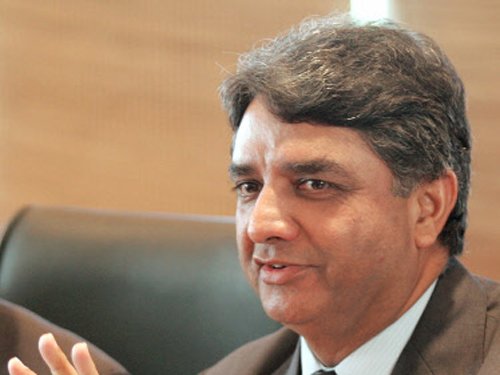
Shri Upendra Tripathy
Shri Upendra Tripathy is a retired Indian Administrative Service (IAS) officer of Karnataka Cadre. He was the First and Founding Director General
of the International Solar Alliance (ISA), which the first treaty based International Organization,
head-quartered in India; with an alliance of 121 countries worldwide, focusing on solar power utilization,
co-operation, and sustainable energy. In ex-officio capacity, he has headed as chairperson, Solar Energy Corporation of India (SECI),
National Institute of Solar Energy and National Institute of Wind Energy, National Institute of Bio Energy, and Association of Renewable Energy Agencies of States (AREAS).
Well known for receiving the Prestigious Prime Minister’s Awards for Excellence in Public Administration in Individual
Category, Tripathy received also several Other Awards for his innovations and ideas during his career as a Proud Civil
Servant. Previously, Befor his stint in ISA, ShriTripathy was the Secretary to Ministry of New and Renewable
Energy. Now Shri Tripathy has been appointed as Advisor cum Working President and Chairman of Executive Committee of Odisha AdarshaVidyalaya on 3rd August 2021.
Shri Tripathy was born and spent his early life in Kahakapur, a remote coastal hamlet in the tail ends of Eastern Ghats hills, near
Rambha, Odisha, Close to Asia's largest salt water Lagoon, Chilika. Tripathy studied in Ravenshaw College, Jawaharlal Nehru University
and Carleton University, Ottawa, Canada. He has published one volume of poetry from Writer's Workshop titled "Caged".
Best known for his turning around of the City Transportation in Bangalore, He received the Extraordinary Citizen Award in 2008
from Rotarians in Bangalore, usually reserved for Chief Ministers and Doyens of the industry for his immense contribution to the City.
Shri Tripathy has done his Master's in Political Science from Jawaharlal Nehru University (JNU), New Delhi and master's in Public Administration from
Carleton University, Ottawa, Canada. He has undergone various training programme in areas of programme implementation, Financial Management,
Sustainable Development, Quantitative Methods and Operational Research for Public Policy and Management and e-Governance. He has also undergone a SIDA training programme in Sweden in areas of Environmental Management.
His institution building abilities and innovations got reflected in building of Hassan Kalamandir (1989),
Center for infrastructure, Sustainable Transportation and Urban Planning (CiSTUP) in Indian Institute of Science (2009),
Environmental Management Policy Research Institute (EMPRI) (2003), Akshar Foundation (2001), turnaround of Bangalore Metropolitan
Transport Corporation (BMTC) (2003–2008) and institution of Nrupatunga Award in Karnataka (2008).
He was the Adviser (Agriculture and Marine Products) in the
Indian Embassy in Brussels. He held the post of Additional Secretary, Cabinet Secretariat; Joint Secretary, Minority Affairs and Dy Secretary;
Ministry of Petroleum & Natural Gas in the Central Government; as well as Chairperson of Karnataka State Pollution Control Board. He has worked
in several sectors such as Revenue Administration, Rural Development, Petroleum Conservation, Agriculture & Horticulture, Agricultural Marketing,
Education, Environment & Transportation, and Renewable Energy.
Detailed Profile in WikiPedia
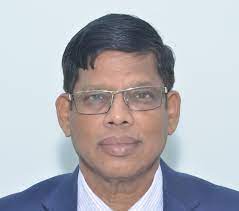
Shri Chewang Norphel
Born in a middle class family of Leh, Norphel was a science student at Amar Singh College, Srinagar. He completed a Diploma Course in Civil Engineering from Lucknow in 1960 and joined the Rural Development Departmentof Jammu and Kashmir in Ladakh as a Civil Engineer. Today, there is hardly any village in Ladakh, where he has not made a road, culvert, bridges building or irrigation system. Norphel, innovated Artificial Glaciers, as a Substitute for Dams. He is better Known as Ice man of India, Someone, who made Artificial Glaciers in winter, so that villages could get water in summer for their fields.
Norphel’s Artificial Glacier has been boon for many of the villages in addressing the acute water scarcity for agriculture and other human household needs like Drinking, Bathing, Cleaning, Cooking Washing etc.. In fact, Ladakh falls in the rain shadow region of the western Himalayas, that receives either very little or no precipitation, resulting crops failures, low productivity and hence the diminishing interest of the farmers in farming activities. The majority of the inhabitants of the region are in subsistence farming and limited livestock rearing. The artificial glacier is the intricate network of water channels and dams, along the upper slopes of the villages at high altitude, ranging from 13000 ft. and above. The glacier runoff is stored at different altitude above the village during three to four winters’ months, where there is no agricultural activity and water is crucial for farming, as dry land cultivation is not possible in the entire area. Ladakh has a short summer, hence the farmers, must sow crops in April–May. Norphel’s Artificial Glaciers enable them to get water full, months before the natural glacier starts melting on high mountain tops. No Crops are grown in Ladakh’s severe winter season and also the water in the streams generally goes waste. Norphel hits upon the ideas of diverting the water to a convenient spot and release it through many small outlets, towards down slope of hills.
Shri Chewang Norphel has been recognized for his innovation on Artificial Glacier and Water Conservation by many he is a very well decorated with national and international awards, so far he received 14 awards - some are mentioned below:
• Best Rural Engineering Award by President of India, 1998
• Far Eastern Economic Review by Gold Asian Innovation Award of Hong Kong 1999.
• Limca Book of Records, 2006
• Jamnalal Bajaj Foundation award by President Of India, 2010 .
• Real Hero Award by CNN – IBN and Reliance, 2008 .
• He has also been awarded Padma Shri Award, 2015, by President Of India.
Padmashree Shri Chewang Norphel is the Chief Patron and Mentor to IISD's Research and Knowledge Support Centre for Sustainable Development at Ladakh.
Norphel Ji's Blog at IISD Ladakh Knowledge Center
Detailed Profile in WikiPedia
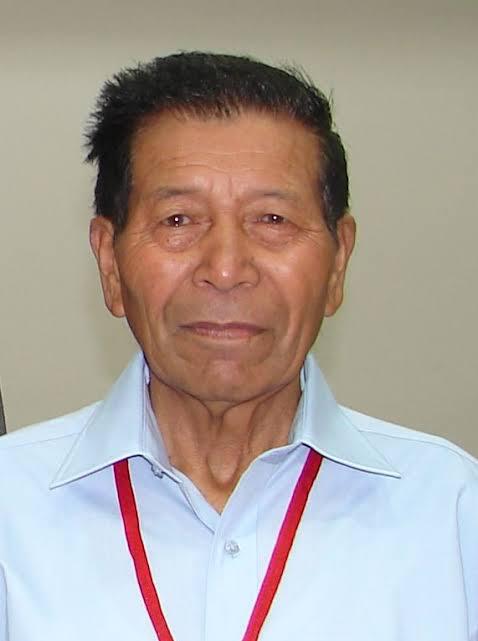
In Memoriam
Late. (Mambillikalathil Govind Kumar) MGK Menon, FRS
(Former, Chairman, Board of Advisors, Indian Institute of Sustainable Development (IISD), New Delhi, India. Since July 2007.)
Mambillikalathil Govind Kumar Menon, FRS, also known as M. G. K. Menon, was a Physicist and Policy Maker from India. He had a Prominent Role in the Development of Science and Technology in India over four decades. One of his most important contributions was nurturing the Tata Institute of Fundamental Research, Mumbai, which his mentor Homi J. Bhabha founded in 1945.
He undertook experiments with cosmic rays to explore the properties of fundamental particles. He was actively involved in setting up balloon flight experiments, as well as deep underground experiments with cosmic ray neutrinos in the mines at Kolar Gold Fields. He was the President of the Indian Statistical Institute, the Vikram Sarabhai Fellow of the Indian Space Research Organisation, President of the National Academy of Sciences, India, Director of the Tata Institute of Fundamental Research, Mumbai (1966–1975), Chairman Board of Governors, Indian Institute of Technology, Bombay and chairman Board of Governors of the Indian Institute of Information Technology, Allahabad. He won the Abdus Salam Award, and was a member of the Pontifical Academy of Sciences. He was one of the most prominent scientists from the state of Kerala and was elected a Fellow of the Royal Society in May 1970. The asteroid 7564 Gokumenon was named in his honour in late 2008.
IISD is paying heartfelt Homage to Late M. G. K. Menon for his kind inspiration and guidence today, as its Former Chairman, Board of Advisors.
Detailed Profile in WikiPedia
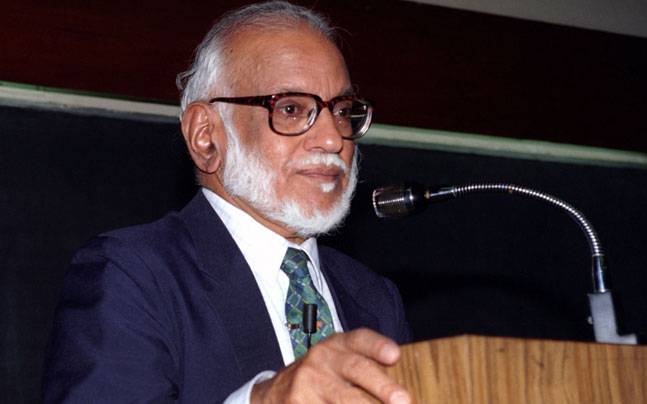

Late. Professor Karl-Göran Mäler
(Outstanding Ecological Economist, Volvo Environment Awardee, 2002; Professor, Stockholm School of Economics, 1975-2002. )
Professor Karl-Göran Mäler (March 03, 1939 – May 20, 2020)
was a Swedish Economist, who was born in 3rd March 1939 in Sollefteå. He pursued undergraduate study in mathematics, statistics and economics at Stockholm University. Mäler specialized in economics at the graduate level, attending the Massachusetts Institute of Technology and Stanford University in the United States before earning a doctorate from Stockholm University in 1972. He was a Professor at the Stockholm School of Economics between 1975 and 2002. Mäler was elected to the Royal Swedish Academy of Sciences in 1981, and served on its Committee for the Sveriges Riksbank Prize in Economic Sciences in Memory of Alfred Nobel until 1994. Mäler and Partha Dasgupta founded the Beijer Institute of Ecological Economics in 1992, and Mäler served as the institute's director through 2006. He and Dasgupta shared the Volvo Environment Prize in 2002. Mäler died in a Stockholm retirement home on 20 May 2020.
IISD is paying heartfelt Homage to Late Karl-Göran Mäler for his kind inspiration and guidence today, as its Former Member, Board of Advisors, since July 2007.
Condolence / Memory Page
ICIMOD Remembers Karl Goran Maler
Detailed Profile in WikiPedia
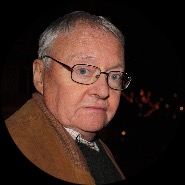

Professor (Ashesh Prosad) A. P. Mitra
Professor (Ashesh Prosad) A. P. Mitra FNA, FASc, FRS (21 February 1927 – 3 September 2007) was a Physicist, who headed the National Physics Laboratory (NPL) in Delhi from 1982 to 1986, India and was the Director General of the Council of Scientific and Industrial Research (CSIR) from 1986 to 1991. He is primarily known for his work on Environmental Physics. Radio & Space Physics was his area of specialization. He performed major work in the field of earth's near-space environment, through group based and space techniques.
His work on cosmic radio noise for studying the upper atmosphere led to a series of discoveries in ionosphere, solar physics and cosmic rays. He was awarded the Shanti Swarup Bhatnagar Prize for Physical Science in 1968.
The citation read - Dr Mitra is one of the acknowledged authorities on ionosphere and on some aspects of space research. His pioneering work on the use of cosmic radio noise for upper atmosphere studies resulted in a whole series of scientific discoveries in ionosphere, solar physics and cosmic rays. He has carried out comprehensive studies on the ionospheric effects of solar flares and has established one of the most extensive radio flare systems at the National Physical Laboratory. He developed an atmospheric model from observations of satellite drag and initiated new D region rocket experiments. Dr Mitra’s work on ion and neutral chemistry in the upper atmosphere, especially on the minor constituent nitric oxide, provided the basis for much of our present knowledge about the lower ionosphere. He has contributed substantially to the establishment and operation of the International Spacewarn System and the International Ursi-gramme and World Day Service. He died in New Delhi in September 2007, where he left his two daughters and wife, Sunanda.
He has strongly supported the need of such a Institute on Sustainability since March 1999 and had played a pivotal role in bringing IISD in July 2007 at New Delhi, who was also a Founding Member to IISD's Board Of Advisers, since it's inception.
Detailed Profile in WikiPedia


